Russia Says Iran Nuclear Deal May Be Reached Next Week
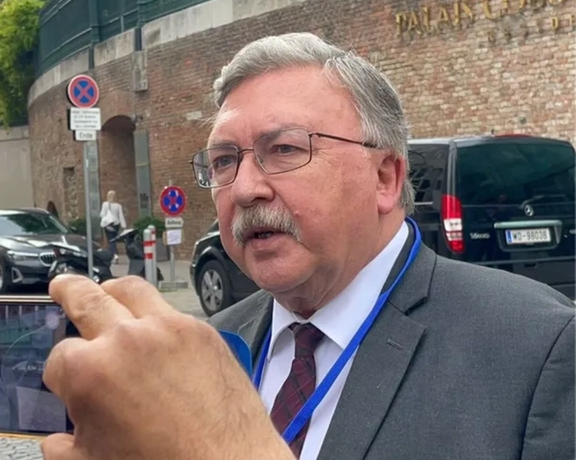
Moscow’s chief negotiator at Iran nuclear talks says an agreement may be reached as early as next week, a statement typical of the Russian diplomat who usually keeps a tint of optimism.

Moscow’s chief negotiator at Iran nuclear talks says an agreement may be reached as early as next week, a statement typical of the Russian diplomat who usually keeps a tint of optimism.
In an interview with TASS published on Sunday, Mikhail Ulyanov, Russia’s permanent representative to the international organizations in Vienna, said, "In the event of favorable development of events the final agreement may be reached as early as next week."
Underlining that EU coordinators have made several amendments to the text that is on the table now, Ulyanov noted that "However, it is possible if all countries participating in the Vienna talks agree with the version of the text provided by EU coordinators on August 8. If amendments, objections appear it is difficult to project further developments now. We have to wait for the beginning of next week.”
Emphasizing that the current text is “not an EU text,” he explained that it is developed by all participants of the talks that have been underway since April 2021.
He reiterated that the US has apparently agreed, whereas Iran has not yet defined its position on the text, which is why “I will not speculate on what issues Teheran may still have. As coordinators, the EU’s representatives may offer compromise options, which they did.”
Conflicting messages came at the end of the latest round of Vienna talks to salvage the 2015 nuclear pact, which concluded on August 7 after 16 months of negotiations, as Ulyanov expressed optimism, the US envoy Rob Malley was quoted as voicing disappointment, and Tehran urging Washington to be flexible.
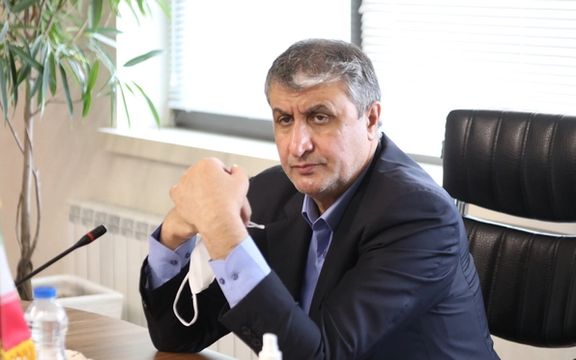
Mohammad Eslami, Iran's current nuclear chief, played a key role in the secret part of the country’s nuclear program, according to a confidential source.
President Ebrahim Raisi appointed Eslami to his current position in 2021 amid pressure by the International Atomic Energy Agency (IAEA) regarding uranium traces found at three nuclear facilities used prior to 2003 when Iran’s nuclear program was secret.
The source who is familiar with the inner workings of AEOI told Iran International that Eslami has the task of erasing the traces of suspicious nuclear activities of the Islamic Republic.
There is reason to believe that the three sites were not only used prior to 2003, but also much later.
Eslami had served as Minister of Roads and Urban Development in the former government and his appointment as nuclear chief surprised many. For the younger generation, the former official’s background seemed unrelated to his nuclear post.
However, a look at Eslami’s resume shows that he played a crucial role in the most critical stages of Tehran’s secret nuclear projects.
Between 1987 and 1989, an envoy from the Ministry of Defense traveled to Dubai to meet Abdul Qadeer Khan, a Pakistani scientist who sold nuclear knowledge and enrichment equipment to the Islamic Republic.
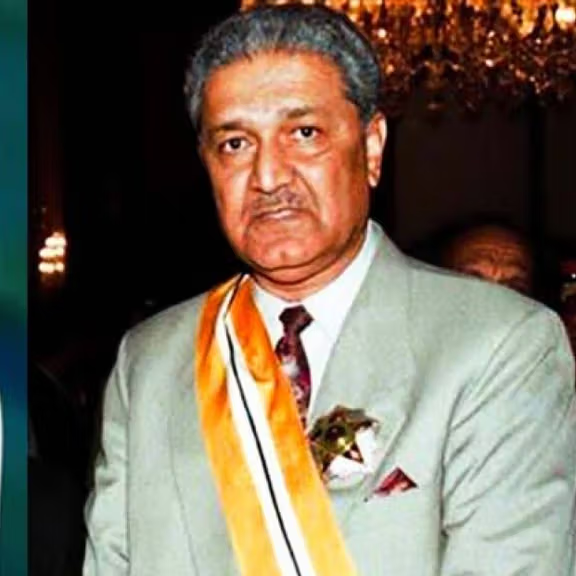
Years later, Abdul Qadeer Khan confirmed the deal with the Islamic Republic in a television interview.
The source with links to the Iranian Organization of the Defensive Innovation and Research (SPND) said, that the mission to Khan was carried out under the supervision of an office headed by Mohammad Eslami.
In a chart leaked from nuclear documents stolen from Iran by Israel, the role of Mohammad Eslami is prominent. As the head of the Defense Industries Educational and Research Institute, he was involved in all aspects of Iran's secret nuclear program that grew into various branches over the years.
One of the most important of these was the Amad project, the Islamic Republic's plan to build an atomic warhead that was pursued under the supervision of Mohsen Fakhrizadeh, Iran's prominent nuclear figure and was stopped in 2003 when it was revealed or leaked.
Fakhrizadeh was assassinated in November 2020, reportedly by Israel in a complicated operation resembling Hollywood thrillers.
The source in SPND said the supervisor of this project was Eslami, and the funds allocated to these programs were spent directly in line with Mohammad Eslami's discretion.
With the closure of the "Amad" project, Iran's secret nuclear projects continued in a new organization, the SPND.
For two years after the signing of the JCPOA, Eslami was the deputy of industrial and research affairs of the Ministry of Defense and a member of Iran's nuclear program.
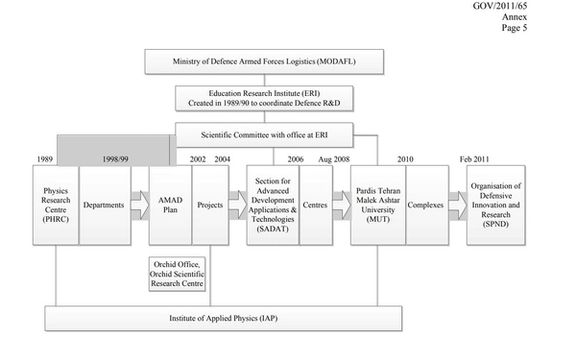
An office mentioned in the nuclear administrative chart of the Islamic Republic is of particular interest. The Orchid Office is an important center in Iran's program to acquire nuclear weapons, according to our source. A building on Orchid Street in Pasdaran district, Tehran, is where major contracts are signed was managed until two years ago by Eslami until Fakhrizadeh was assassinated.
SPND was the center where Fakhrizadeh was pursuing his unfinished plan for the Amad project on a separate budget line.
The United States has sanctioned SPND exactly for its secretive nuclear work.
The two nuclear sites of Sorkh-eh-hesar, [Tehran], and Marivan near Abadeh, Fars Province, were given to SPND so that Fakhrizadeh could pursue his plan to produce nuclear weapons with the cooperation of Saeed Borji, an expert in atomic explosions.
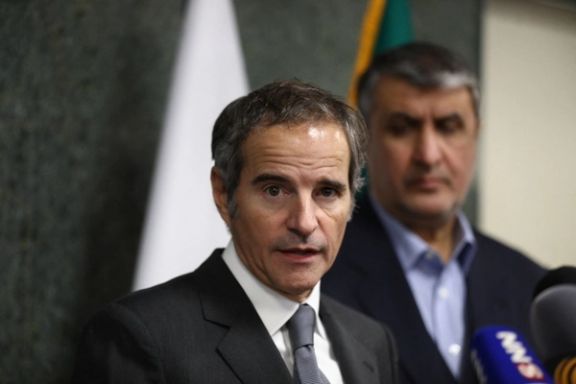
However, by looking at the history of the Atomic Energy Organization of Iran, each of the heads of this organization was appointed out of a specific necessity.
During the years when the secret nuclear program was pursued in the Ministry of Defense, Reza Amralahi was the head of the organization.
With the development of this program and the need to build and equip extensive facilities such as Natanz, in Esfahan Province, Gholamreza Aghazadeh became the head of the organization. This former oil minister had the power to inject cash into Iran's nuclear program.
His strong disagreement with then-president Mahmoud Ahmadinejad led Ali Akbar Salehi to become the head of the organization. Salehi who was Iran’s former representative at the IAEA took the helm of the Atomic Energy Organization when the negotiating team when the UN Security Council was issuing sanction after sanction against Iran in early 2010s.
With the assassination of nuclear scientists and under the pressure of the Revolutionary Guards, Fereydoun Abbasi became the head of the Atomic Energy Organization, who himself had survived an assassination.
Although years later, in an interview with the Ensaf News website, which was deleted after publication, a security official considered his assassination suspicious and raised the possibility that he was a spy. Abbasi was one of Fakhrizadeh's colleagues and one of his vociferous opponents and rivals.
When the JCPOA’s time arrived, Salehi returned to the AEOI as a scientific figure.
With the election of Raisi in the most engineered election in the history of the Islamic Republic, Eslami is the repository of Islamic Republic’s nuclear secrets and was appointed as the best suited person in the post of nuclear chief to eradicate all traces.
He announced August 1 that the Islamic Republic had achieved the ability to build nuclear weapons.
During his one-year tenure, Iran has hardened its position not to provide further explanations to the IAEA on past nuclear work and Eslami has turned off most of the international watchdog’s monitoring equipment in Iran’s nuclear facilities.
He seems to be a man who has returned to Iran’s Atomic Energy Organization to clear his and his colleagues’ footprints on the secret part of Iran’s nuclear program.
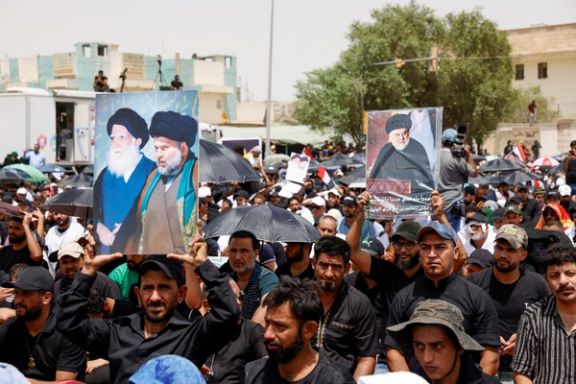
Following a call by Iraq's influential cleric Muqtada al-Sadr to extend the scope of protest rallies, several government offices in Baghdad were besieged by his supporters on Sunday.
Thousands of al-Sadr’s followers prayed outside parliament on Friday in a show of support for the populist leader, who has given a "final ultimatum" to Iran-backed Shiite groups and called on the judiciary to dissolve parliament by the end of next week. The judiciary has said it does not have the authority to do so.
Supporters of rival Iraqi factions have been on the streets of Baghdad since Friday to call for a new government, with supporters of Sadr -- who seeks to curb the influence of the Islamic Republic in Iraqi politics -- demanding early elections and his Iran-backed opponents saying the results of last October's poll should be honored.
While supporters of the Sadrist movement have occupied the fortified Green Zone, which houses parliament, government buildings and foreign embassies, the proponents of the Coordination Framework -- a coalition of Shiite parties close to Tehran – have held a rally in one of Baghdad’s streets.
The protests in the green zone are a show of force by the firebrand cleric whose party won the highest number of seats in the October 2021 elections but withdrew after failing to form a government with Sunni and Kurdish allies in Iraq's hectic power-sharing system. Iran-backed parties have dominated many state institutions for years.
Last Friday, August 5, thousands of protesters from Iraq's southern provinces entered Baghdad's Green Zone again, chanting slogans against Iran’s interference in Iraq’s internal affairs.
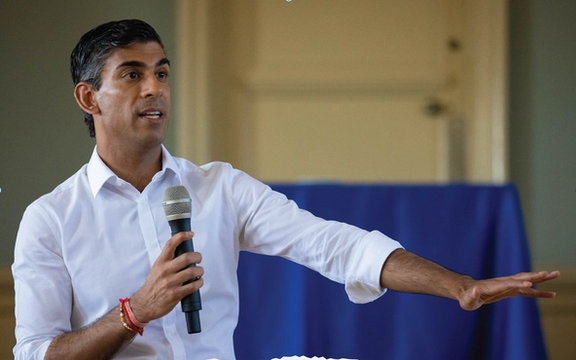
A prime ministerial candidate says the UK must sanction Iran over the attack on Salman Rushdie as police believe the perpetrator was sympathetic to Shiite extremism and IRGC.
Conservative hopeful Rishi Sunak said on Saturday that Britain should designate Iran’s Revolutionary Guards as a terrorist organization, warning that the stabbing should be a “wake-up call for the West”.
The conservative politician noted that the response to the stabbing by Iranian politicians and senior figures strengthens the case for proscribing Tehran’s elite military unit. He also suggested that the Vienna talks to salvage the 2015 nuclear deal with Iran may have reached “a dead end”.
Hadi Matar, the pro-Iran fanatic that stabbed the author at an event in New York state on Friday, was charged with attempted murder on Saturday.
A preliminary investigation by police, including of the 24-year-old’s social media accounts, suggested he was sympathetic to Iran’s Revolutionary Guard, as his Facebook account featured pictures of Qasem Soleimani, the IRGC general who was killed in a US drone strike in 2020, and Iran’s Supreme Leader. He was in possession of a fake driving license that had the surname of a Hezbollah leader allied to Soleimani.
Rushdie, who spent years in hiding after Iran urged Muslims to kill him over his novel "The Satanic Verses", was stabbed in the neck and torso on stage at a lecture on Friday. He has been taken off a ventilator and is now able to talk.
Iran’s Kayhan daily linked to Iran’s Supreme Leader said “a thousand bravos” to the man who attacked Salman Rushdie, implying that his throat should have been cut.
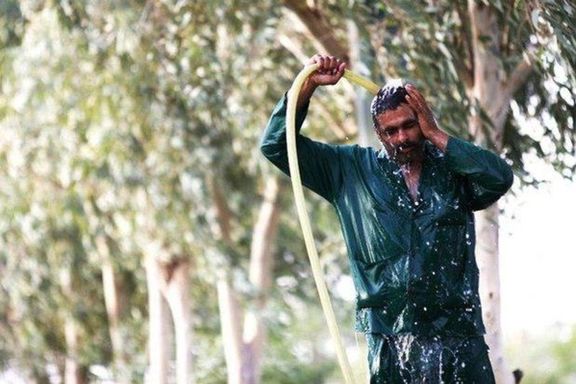
More than 500 workers of different oil and gas projects in southern Iran have been hospitalized with a number of them dead due to high temperatures in recent days.
An oil sector wokers' union announced on Saturday that at least two people have died this week in the city of Abadan due to heatstroke and weakness caused by hours of exhausting work in extreme heat.
Two weeks ago another worker died during work in the provincial capital of oil-rich Khuzestan while the government offices and businesses were closed due to high temparatures.
Despite temperatures rising to more than 50 degrees Celsius – about 122 in Fahrenheit scale – in the southern parts of the country, where most of the oil and gas plants are located, subcontractors for the government refuse to stop work even for a few hours.
According to reports, the working conditions in the port city of Asaluyeh in Bushehr province is so bad that at least 100 workers are taken to hospitals for heatstroke daily, as the temperature has reached 53 degrees and the humidity is over 90 percent.
Amid a dire economic situation in Iran at least 10 workers have committed suicide in the last three months due to dismissal from their jobs and "livelihood problems". The latest happened on Saturday in the western city of Ilam.
With food prices rising faster after four years of United States’ ‘maximum pressure’ sanctions, Iranian workers and retirees have been holding regular protests or strikes to demand higher salaries.
In May, widespread protests by workers, shop owners, and teachers against poverty, inflation, and low wages, were met with heavy-handed crackdown and numerous arrests by security forces.
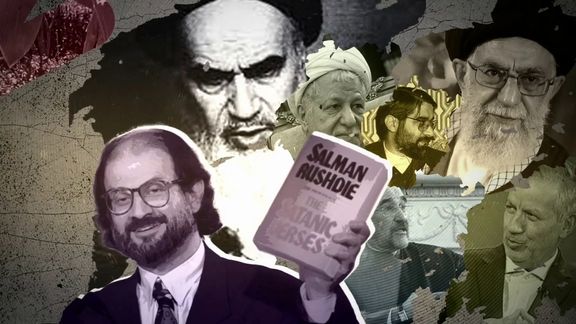
A newspaper in Iran closely affiliated with the country’s ruler Ali Khamenei has called the assassination attempt on author Salman Rushdie “divine vengeance”.
Iran’s government and top officials have not reacted to the attack in New York on Friday. While the hardliner media have welcomed the move implicitly or even openly, praising the assailant. Kayhan daily linked to the Supreme Leader, for instance on Saturday said “a thousand bravos” to the man who attacked Rushdie, implying that his throat should have been cut. In its Sunday edition, the paper said, “divine vengeance befell Salma Rushdie” and predicted that former US President Donald Trump and his Secretary of State Mike Pompeo are next.
Some Iranian media and political figures have adopted a different tact accusing opponents of the revival of the 2015 nuclear deal of using the attack on Salman Rushdie as a means of sabotaging a possible nuclear agreement.
Proponents of the conspiracy theory claim there is a possible involvement of Iran’s opponents, particularly Israel, who want to discredit the Iranian government and sabotage agreement on the revival of the Joint Comprehensive Plan of Action (JCPOA) and lifting of US sanctions.
Hardliner Mohammad Marandi who has acted as a spokesman-cum-advisor of the Iranian negotiators in Vienna nuclear talks, tweeted that he would not be shedding tears “for a writer who spouts hatred and contempt for Muslims and Islam” but went on to ask if it “isn’t odd that as we near a potential nuclear deal, the US makes claims about a hit on Bolton... and then this happens?”

“I'm not an exponent of conspiracy theories, but simultaneousness of the news about plans to assassinate [John] Bolton and the attack on Rushdie with the finalization of talks to restore the JCPOA isn’t not credible to me,” reformist' politician and commentator Abbas Abdi who is an ardent critic of the Raisi government, tweeted.
It is quite possible that the recent ‘plots’ against US officials and citizen as well as Rushdie were organized by the Israeli intelligence to prevent diplomatic solutions to the disputes between Tehran and Washington, Reza Nasri, a commentaor said in a tweet while in a commentary Saturday the conservative Alef news website said the West would devise ‘propaganda scenarios’ against Iran revolving around the attack on Rushdie.
Others on social media have seen these statements as an attempt by Iran to create confusion to deflect blame for a death fatwa issued 34 years ago against Rushdie that could have led to the Friday knife attack.
The 15 Khordad Foundation, a charity organization that put the multi-million-dollar bounty on Rushdie’s head in 1989 and even increased it by half a million to $3.3 million in 2012, has so far remained silent about the assassination attempt.
Hadi Matar (24), the suspect in the stabbing of Rushdie at an event in New York state, has now been charged with attempted murder and is being held without bond, prosecutors in Chautauqua County said on Saturday.
A preliminary law enforcement review of Matar's social media accounts showed he was sympathetic to Shi'ite extremism and Iran's Islamic Revolutionary Guard Corps (IRGC), although no definitive links had been found, according to NBC New York.
In the US, Republicans have demanded that the Biden administration must put an end to negotiations with Iran in view of the terrorist act against Rushdie sanctioned by Khomeini's fatwa as well as the alleged recent Iranian plots against US officials and citizens including John Bolton, Mark Pompeo, and Masih Alinejad, an Iranian American activist.